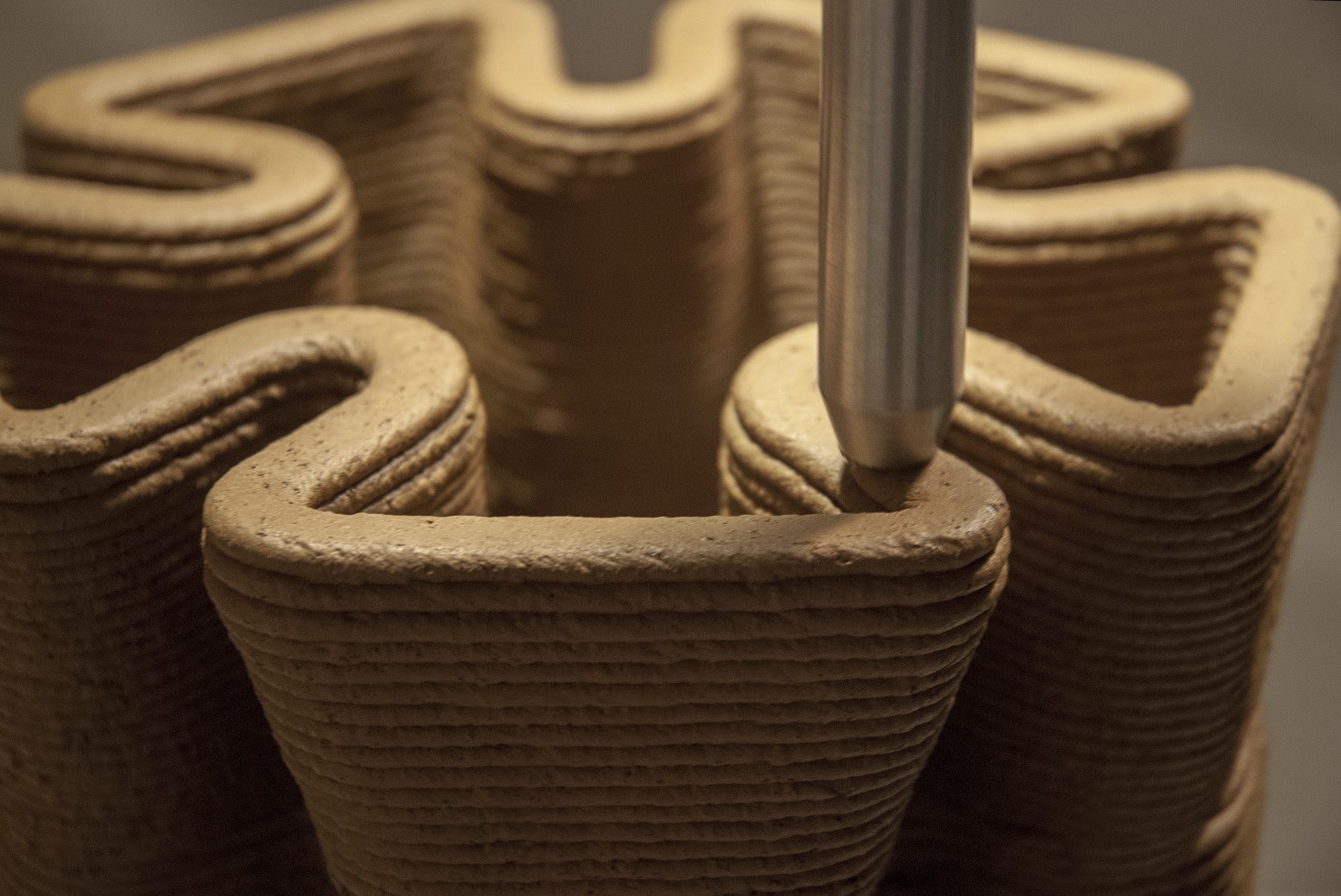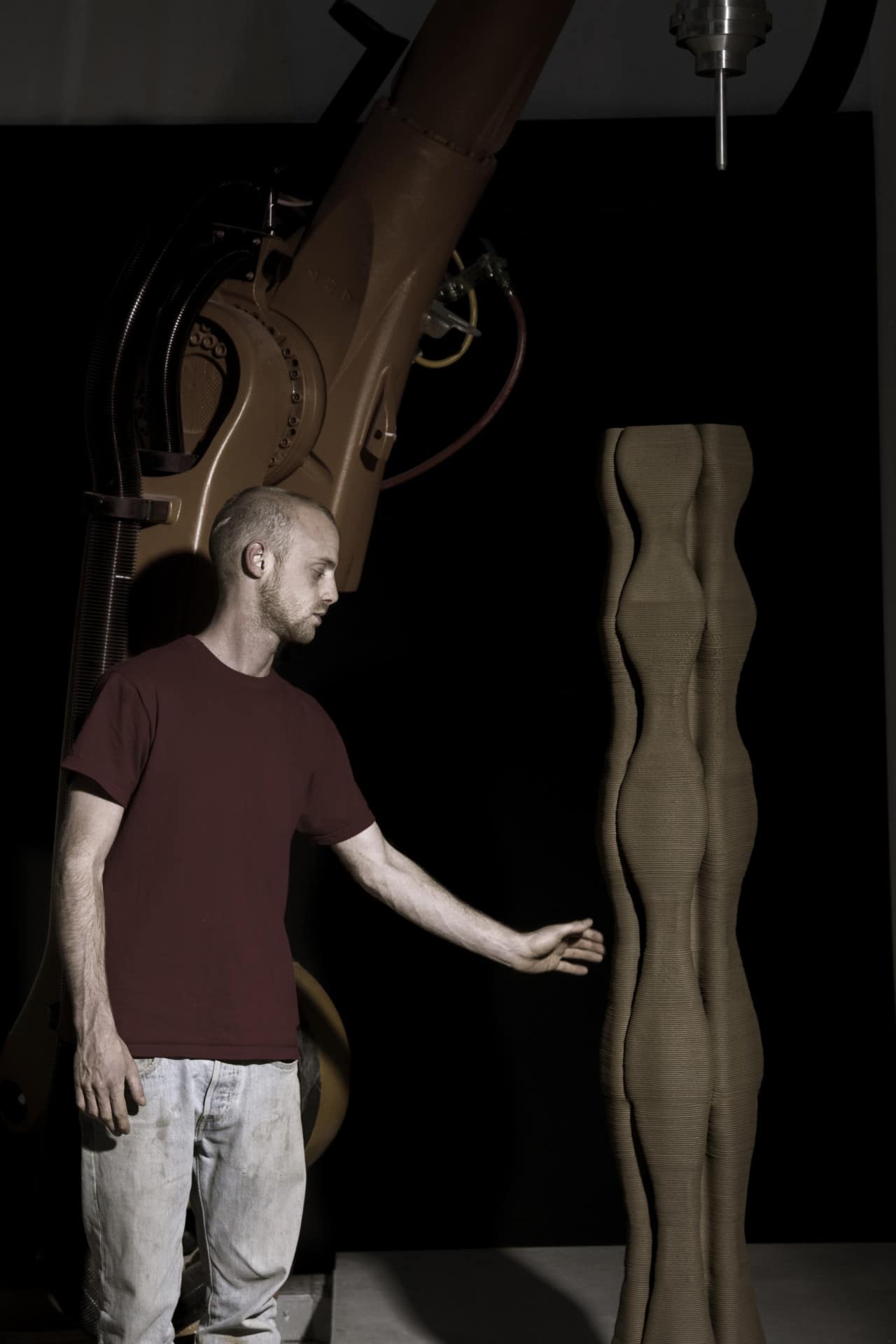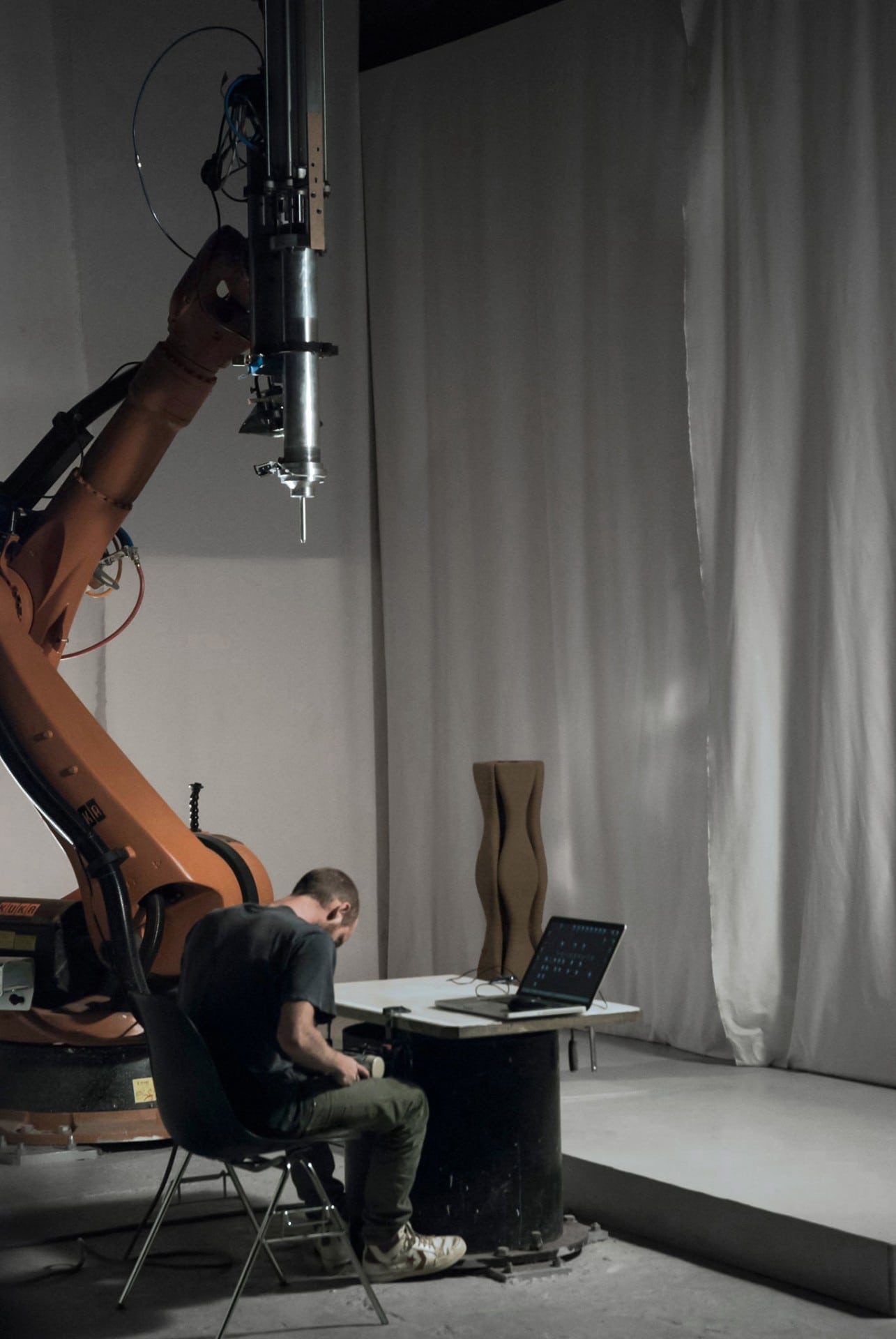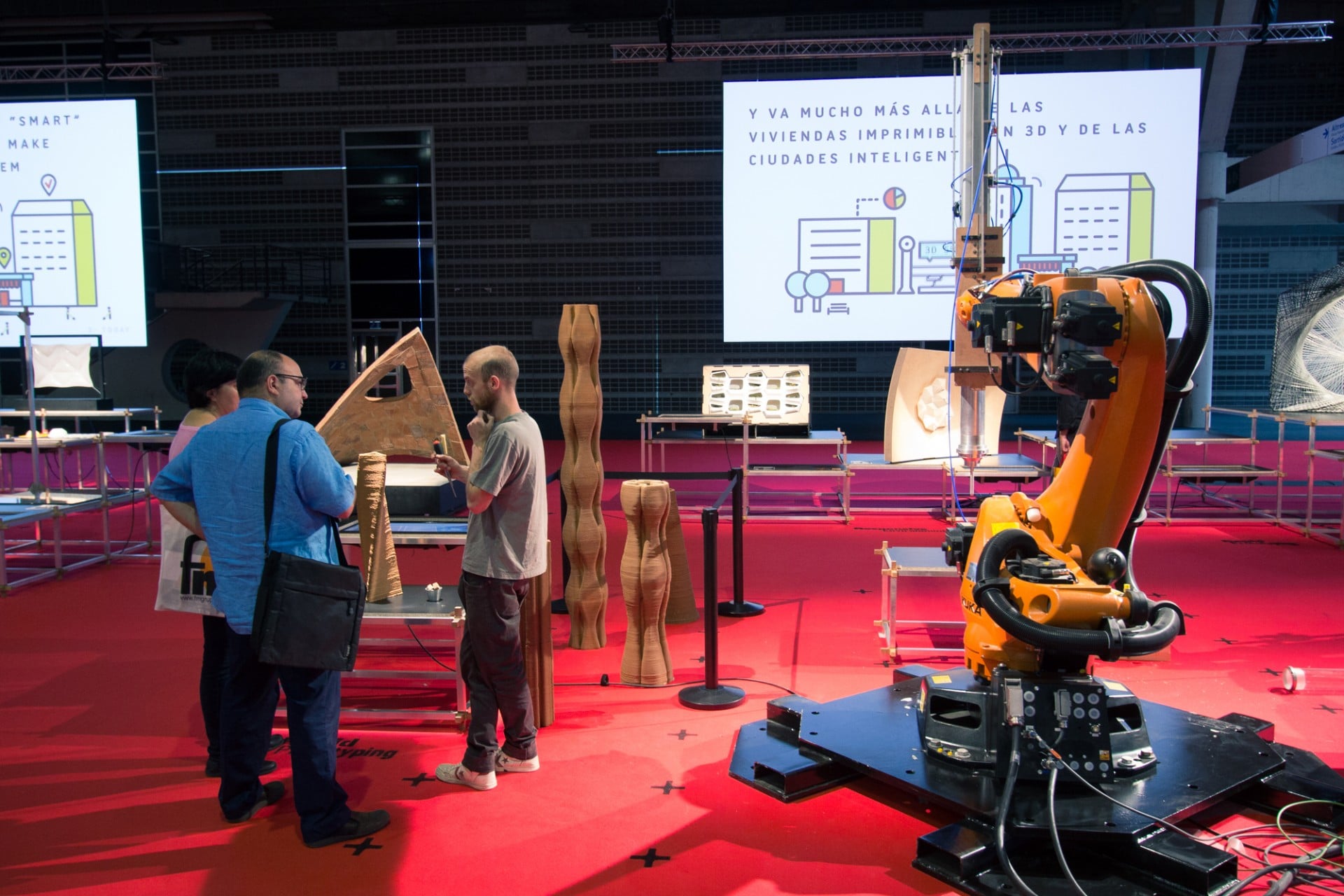Catalunya (Barcelona)
Submitted by you:
Getting its name from the Greek for ‘clay’, Pylos introduces a more ecological approach to housing using soil – a natural, locally found, biodegradable and, thus, recyclable material – for large-scale additive manufacturing.
The demand for shelter is so pressing in developing countries that it can only be met by ‘informal’ housing – often self-built, usually illegal, and almost always lacking basic infrastructure. The current processes that characterise large-scale habitable construction rely heavily on unsustainable practices, causing negative impacts to the local and global natural environment, costing a great deal of money and time and effort, and consuming a huge amount of energy.
Additive manufacturing is a revolutionary process that produces components by adding, or building up, material to form an object. 3D printing allows materials to be placed only where it is required. By using an extensively available material that is more than 96 percent soil (with three times the tensile strength of hard industrial clay) this fabrication can be implemented almost everywhere – maybe even one day underwater, or the moon.
But it’s not only the technology and the material that is novel. The process is carefully selected for low consumption of energy, extremely low material wastage in construction, low resulting of pollution and negative environmental and social impacts, low cost for extraction and maintenance, and availability for reusing and recycling processes.
Unbaked soil always maintains a percentage of moisture. Water, in any of its forms, is essential for life as we know it. Wouldn’t be beautiful to invent new digital fabrication methods, which incorporate in their design some physical elements? Water has the capacity to regulate the indoor climate of a building, purify its atmosphere, reducing overall ventilation and heating costs.
Hassan Fathy put it this way: ‘’Ironically, most public housing in the world today is done without the cooperation of either the architect or the society. It is a bureaucratic decision built by contractors, wherever is horizontal or vertical, it almost immediately becomes a slum. It is perhaps the final irony of our age. It costs more to produce this form of ugliness and that we will be driven toward better, more beautiful housing simply because we cannot afford any other kind.”
Watch the Pylos 3D printer in action. It’s quite beautiful.
Project leader
Sofoklis Giannakopoulos, Fabrication Researcher, IAAC
Support the Atlas
We want the Atlas of the Future media platform and our event to be available to everybody, everywhere for free – always. Fancy helping us spread stories of hope and optimism to create a better tomorrow? For those able, we'd be grateful for any donation.
- Please support the Atlas here
- Thank you!






